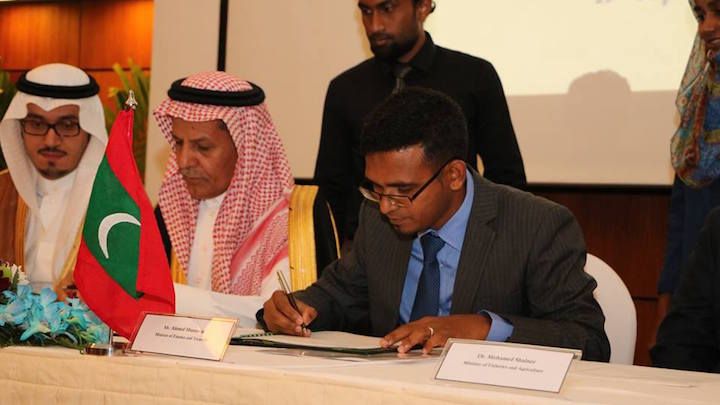Saudi Fund lends Maldives US$100m for new airport terminal
“This is a concessional loan from the Saudi Fund to be repaid within 25 years, with a grace period of five years, at an interest rate of two percent,” the finance ministry said. It will be used to finance the development of a new passenger terminal by the Saudi Binladin group.

26 Sep 2016, 09:00
The government has signed a US$100 million loan agreement with the Saudi Fund for Development to finance the expansion of the Ibrahim Nasir International Airport.
According to the finance ministry, the loan will fund the development of a new passenger terminal by the Saudi Binladin group. The project was awarded to the Saudi construction giant last May for an undisclosed amount.
“This is a concessional loan from the Saudi Fund to be repaid within 25 years, with a grace period of five years, at an interest rate of two percent,” the ministry said.
After signing the agreement at Kurumba Resort last night, Finance Minister Ahmed Munawar told local media that the loan is the largest granted by the Saudi Fund for a single project in the Maldives so far.
Become a member
Get full access to our archive and personalise your experience.
Already a member?
Discussion
No comments yet. Be the first to share your thoughts!
No comments yet. Be the first to join the conversation!
Join the Conversation
Sign in to share your thoughts under an alias and take part in the discussion. Independent journalism thrives on open, respectful debate — your voice matters.




